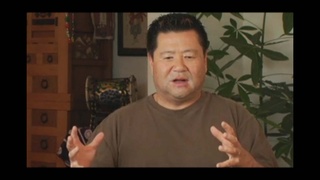Interviews
Differences between American-born Japanese and Japanese from Japan
I think American-born Japanese people, they have more gesture talking. Totally, that’s a cultural difference. But that time, I was very much Japanese Japanese. So I eventually… You know, Johnny Mori, all those guys, had a hard time to talk to communicate [with] me. Those are American-born Japanese. And I’m from Japanese Japanese. So early ‘60s, yeah, maybe culture shock.
Date: January 27, 2005
Location: California, US
Interviewer: Art Hansen, Sojin Kim
Contributed by: Watase Media Arts Center, Japanese American National Museum.
Explore More Videos


Support from the Japanese American community
(b.1971) Professional figure skater and Olympic gold medalist.

Heightened awareness of identity as a Japanese American
(b. 1955) Lawyer

Reasons for conformity and competitiveness in Gardena, California
(b. 1946) Lawyer







Advantages of being Nikkei (Spanish)
(b. 1950) Nisei Chilean, Businessman


Childhood shame for being Nikkei in Enumclaw, Washington
Judge, only Japanese American to serve on CWRIC.

On the Impact of the Camp Experience
(b. 1942) The first Asian American woman judge

Thoughts on the term, "Nikkei"
(b. 1949) Musician and arts educator and adminstrator.
